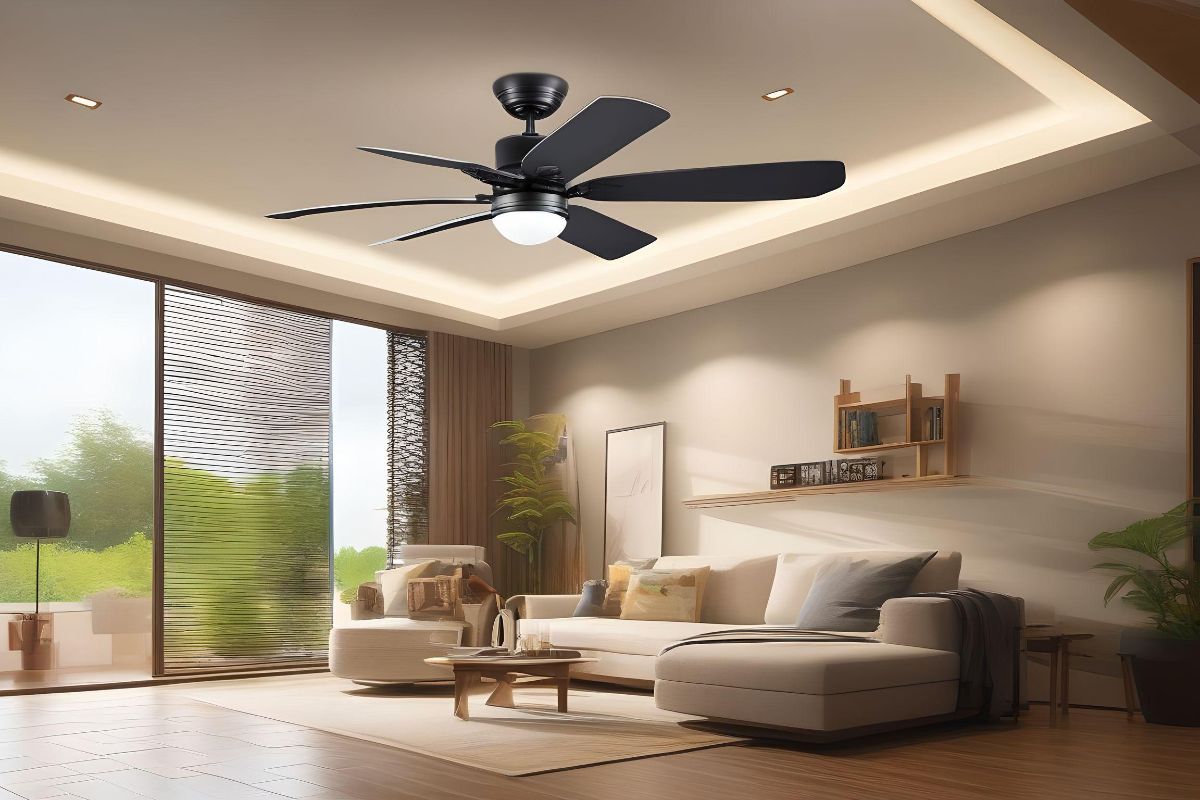
Factors to Consider When Choosing a Ceiling Fan With Light
You know how you walk into someone’s house and the first thing you notice is their gorgeous ceiling fan lighting up the room? Yeah, me neither. But having a major moment right now. If you’re thinking of hopping on the trend, hold up. Ceiling fans with lights aren’t necessarily right for every room. Before you go drilling holes in your ceiling, make sure you’ve considered a few key factors. The size and layout of your space, for one. And what kind of ambiance you’re going for? In this article, we’ll break down everything you need to know before installing a ceiling fan with light in your home. We’ll look at recommended room sizes, positioning, light brightness, and more. That way, you can make the most informed decision for your space. Let’s dive in!
Recommended Sizes for Different Room Dimensions
Size of Room
The size of your room is one of the most important things to consider. For a small room like a bedroom or office, a fan with a blade span of 36 to 44 inches should do the trick. Larger rooms will require bigger fans, from 52 to 60 inches or more, to effectively circulate the air. Keep in mind that fans too small for the room won’t move enough air, while fans too large can seem overpowering.
Mounting Height
How high your ceiling is will determine how far down from the ceiling you’ll want the fan. For standard ceilings, you’ll want the blades to hang 8 to 9 feet from the floor. In rooms with high or vaulted ceilings, the fan should be at least 7 feet above the floor for safety and optimal circulation. Some fans come with extension rods to accommodate higher ceilings.
Lighting Needs
Consider how much light you need in the room and the fan’s lighting capabilities. Most ceiling fans with lights offer three to four bulbs with wattages from 40 to 100 watts, providing basic ambient lighting. For task lighting or brightly lit rooms, look for higher wattages or fans compatible with LED bulbs which provide more light for less energy.
Motor Size
The motor size, measured in cubic feet per minute or CFM, determines how much air the fan can move. Larger rooms require higher CFMs for efficient cooling, around 5000 to 6000 CFMs or more. For smaller spaces, 3000 to 4000 CFMs should work well. Higher quality motors also lead to less noise and longer lifespan, so consider your needs and budget.
Style
Ceiling fans come in a range of styles from rustic to modern. Choose a fan that matches your home’s decor and architecture. Blade span, number of blades, lighting, and accents like integrated bows or medallions can all affect the overall style. With so many options, you’re sure to find a perfect stylish and functional fan for your space.
Features to Look for in Ceiling Fans With Lights
For small rooms (up to 75 square feet)
You’ll want to go with a fan on the smaller end of the spectrum for cramped quarters like bedrooms, closets, or bathrooms. A 36-to-44-inch fan with three blades should do the trick for rooms of this size. Any bigger and it may overwhelm the space or make it difficult to walk around.
For medium rooms (75 to 150 square feet)
Living rooms, dining rooms, and home offices of average size call for a 44-to-52-inch fan to properly circulate air. These mid-sized fans with 4 or 5 blades can typically light a room well, too. If the ceilings are higher, you may need to size up to a 60-inch fan for the best efficiency and comfort.
For large rooms (150 square feet or more)
Big fan of big rooms! Open-concept living spaces, master bedrooms, and basements will require a ceiling fan on the larger end of the spectrum – 60 inches and up. Larger fans, especially those 72 inches or bigger, are best for maximizing airflow in expansive rooms with high ceilings. Some extra-large fans also come with 6 blades or more for maximum cooling power.
The most important thing is to choose a ceiling fan size that is proportional to your room size. Installing a fan that is too small won’t circulate the air effectively, while a fan that is too large for the space may be overly noisy and wobbly. Measure your room, check the fan specifications and you’ll find the perfect, balanced solution.









